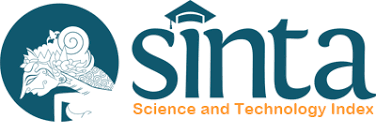JUDGES' CONSIDERATIONS IN DECIDING CRIMINAL ACTS OF CLASS 1 ARCOTIC ABUSE FOR YOURSELF (CASE STUDY Number 1/Pid.Sus-Anak/2019/PN Lbp PN LUBUK PAKAM)
DOI:
https://doi.org/10.58471/justi.v13i1.438Keywords:
Judge's Consideration, Narcotics Abuse Category 1 For Yourself, Number 1/Pid.Sus-Anak/2019/Pn LbpAbstract
Narcotics abuse no longer looks at age, ranging from children, teenagers, adults to the elderly even though they are not free from the trap of narcotics abuse. It is estimated that around 1.5 percent of the total population of Indonesia are victims of narcotics abuse. The problem of narcotics circulation is no less worrying, because it does not only occur in big cities but also reaches remote parts of Indonesia. Misuse of psychotropic substances can lead to a dependency syndrome if their use is not under the supervision and guidance of health workers who have the expertise and authority to do so. The reality in society shows that psychotropics should be used in health services and science has been abused. The use of this substance is out of bounds, which is generally intended for temporary pleasure. This causes people who are addicted to psychotropics to increase. The demand for psychotropics in the black market is also getting bigger. The crime rate that arises from the urge to get psychotropics as well as those that occur after someone consumes them also increases. This research method is normative juridical which will explore various secondary literatures consisting of legislation, regulations, books, journals and papers related to patents. The author uses a normative juridical method because the target of this research is law and rule. The definition of rules includes, legal principles, rules in a narrow sense and concrete legal regulations. This normative juridical research method aims to find coherent truth through deductive reasoning. Deductive way of thinking means research will depart from a specific idea.Data collection methods are through: questionnaires, interviews, observations, exams (tests), documentation, and others. Researchers can use one or a combination of techniques depending on the problem at hand or being studied.The results of the study stated that the child of BAYU SETIAWAN, Als. ARIF IRAWAN, had been legally and convincingly proven guilty of committing the crime of "Narcotics Abuser Group I for himself"; Imposing a criminal sentence to the child therefore with imprisonment for 7 (seven) months; Determine the period of arrest and the period of detention that the child has served is completely deducted from the sentence imposed; Determine that the child remains in detention; Stating evidence in the form of: 1 (one) small plastic clip pack containing methamphetamine with a net weight of 0.04 (zero point zero four) grams.
References
A. R. Sujono dan bony Daniel, 2001, komentar Dan Pembahasan Undang-Undang No. 35 Tahun 2009 Tentang Narkotika, sinar Grafika, Jakarta, hlm vii
Apandi, Yusuf. 2010. Katakan Tidak Pada Narkoba. Jakarta : Simbiosa Rekatama Media.
Arikunto, Suharsimi. 2006. Prosedur Penelitian Suatu Pendekatan Praktik Edisi Revisi. Jakarta: Rineka Cipta.
Ahmad Rifai,2016 Penemuan Hukum oleh Hakim dalam Perspektif Hukum Progresif, (Jakarta: Sinar Grafika,), hlm. 104.
AndiHamzah,(2015). Bunga Rampai Hukum Pidana dan Acara Pidana. G halia Indonesia Jakarta.hal 102
Bambang Waluyo, 2016, Penelitian Hukum Dalam Praktek, Jakarta: Sinar Grafika, hal. 16
Dadang Hawari, 1997 Al-Qur’an: Ilmu Kedokteran Jiwa dan Kesehatan Jiwa (Jakarta: PT. Dana Bhakti Prima Yasa), h. 45.
Dani Krisnawati, Nomor 46/II/2004 (Februari, 2004) ”Pelaksanaan Sanksi Pidana Denda pada Tindak Pidana Psikotropika”, Mimbar Hukum, hal. 118.
Gatot Supramono, 2004, Hukum Narkoba Indonesia, Jakarta: Djmbatan. Hal. 16
Nashriana, 2011, Perlindungan Hukum Pidana bagi Anak di Indonesia., Ed 1-1. Jakarta: Rajawali Pers, hal. 1
Muhammad Yamin , 2012, Tindak Pidana Khusus, Cetakan Pertama. Bandung: Pustaka Setia, hal. 163
Moh. Makaro Taufik, Suhasril, dan Moh. Zakky, 2005, Tindak Pidana Narkotika, Cetakan Kedua.Bogor: Ghalia Indonesia, hal. 19
Mohammad Taufik Makarao, Wenny Bukamo, dan Syaiful Azri, 2013, Hukum Perlindungan Anak dan Penghapusan Kekerasan dalam Rumah Tangga, Jakarta: Rineka Cipta, hal. 1
Koesno Adi, 2014, Diversi Tindak Pidana Narkotika Anak, Malang: Setara Prees, hal.
Peter Mahmud Marzuki, Penelitian Hukum, Surabaya: Prenda Media Group,2005, hlm 138.
Supardan, Dadan. 2006. Meniti Masa Depan Menjauhi Narkoba. Jakarta Pusat : PT Mediantara Semesta.
Suyadi. 2013. Mencegah Bahaya Penyalahgunaan Narkoba Melalui Pendidikan Budaya dan Karakter Bangsa. Yogyakarta : Andi Publisher.
Sunaryati Hartono, 1994 Penelitian Hukum Di Indonesia Pada Akhir Abad Ke 20, Bandung; Alumni.
Siswantoro Sunarso, 2004, Penegakan Hukum Psikotropika Dalam Kajian Sosiologi Hukum Jakarta: RajaGrafindo Persada, hal. 5
Sudikno Mertokusumo,2017 Hukum Acara Perdata Indonesia, (Yogyakarta : Liberty, ), hlm. 108
Wirjono Prodjodikoro,2003 Asas-Asas Hukum Pidana di Indonesia, (Bandung: Rafika Aditama, ), hlm.1.















